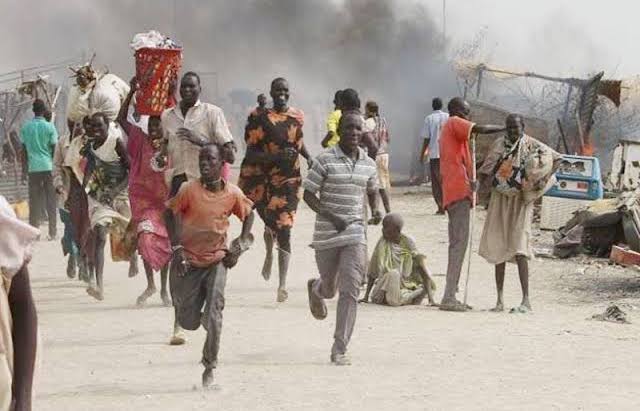There are no products in your shopping cart.
| 0 Items | £0.00 |


NIGERIA lost as much as $10.3bn to the growing insecurity ravaging the country in 2020 alone according to statistics just published by the Presidential Economic Advisory Council (Peac).
Since 2009, Boko Haram has been waging a war against the Nigerian state as it seeks to establish an Islamic theocracy governed by strict Sharia law in the northeast of the country. Since the current administration came to office in 2015, things have got dramatically worse, however, with banditry, kidnapping, attacks by heavily-armed Fulani herdsmen, rape, armed robbery, etc all on the rise, making many parts of Nigeria no-go areas.
Yesterday, Peac presented a report to President Muhammadu Buhari on the economic impact of the violence on the economy at the presidential villa in Abuja. President Buhari had constituted the council under the chairmanship of Professor Doyin Salami to replace the Economic Management Team, which vice president Professor Yemi Osinbajo earlier set up to advise the National Economic Council.
At its sixth regular meeting, the council dissected the country’s economic environment, revealing that gross domestic product (GDP) fell by 2.6% in 2020. It cited the grievous consequences of ethno-religious conflicts mostly caused by suspicion and distrust among various ethnic groups and the major religions in the country.
Examples of such conflicts, as the council documented in its 33-slide presentation, include the Boko Haram insurgency, communal conflicts in southern Kaduna as well as farmers-herdsmen clashes in the Middle Belt, especially Benue State. It observed that there was a general consensus of a worsening of the security situation in Nigeria, which it said, included competition for power and ultimately resources, usually around the general election.
Resource-based violence, according to the council, includes competition for economic opportunities driven by illegal mining in some states, kidnapping for ransom, Niger Delta militants, piracy and farmer-herder conflicts. It dissected the dynamics of violent farmers-herdsmen conflict, mainly among groups that peacefully co-existed previously, exacerbated by infiltration of foreigners on the one hand and climate change and environmental challenges on the other hand.
Citing incontrovertible statistical evidence, the council claimed that nationwide insecurity had multidimensional implications, especially for economic and human development. In terms of economic cost, the council disclosed that insecurity had cost Nigeria $10.3bn or 2.6% of the GDP, which dropped from $568.5bn in 2014 to $375.75bn in 2017 but then rose to $448.12bn in 2020.
In addition, the council equally cited a study by the United Nations Development Programme (UNDP) estimating that Nigeria lost $141.9bn of production to security-related violence between 2007 and 2019. Furthermore, the council analysed the impact of human capital, which escalated the population of out-of-school children to over 13m and significantly reduced life expectancy nationwide.
While it claimed that extreme poverty in the conflict zones was accentuated by conflict, the council observed that unemployment rate, currently standing at 33.33%, had steadily increased since 2014, in line with worsening insecurity, thus adding to the population of persons that had fallen below the poverty line. Consistent with Peac’s report, data from the Nigerian Bureau of Statistics revealed that the volume of foreign direct investment inflow dropped to $1.03bn in 2020 from $2.28bn in 2014.